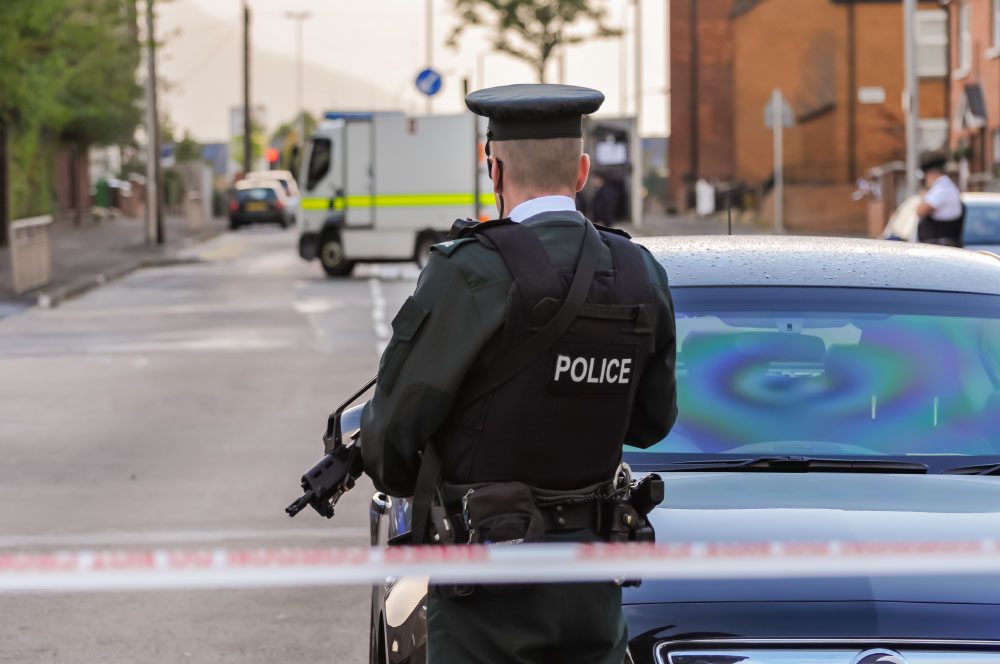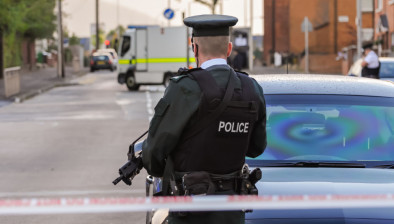NI: Around 35,000 under-18s stopped and searched by PSNI officers since 2010

Around 35,000 children have been stopped and searched by PSNI officers in the past nine years with little benefit for community safety, a major stop and search policing conference will hear today.
The new PSNI chief constable, Simon Byrne, is among those attending the conference at Queen’s University Belfast, which will mark 20 years since the Patten Commission on policing in post-conflict Northern Ireland.
The conference will hear concerns that stop and search is used “disproportionately” against young people, with a negative impact on relations between young people and the police.
The joint conference is being hosted by Include Youth, the Children’s Law Centre, and Crime and Social Justice Group from the School of Social Sciences, Education and Social Work at QUB.
The aim of this conference is to explore the current agenda and evidence around the policing of children and young people in Northern Ireland, with a particular focus on PSNI stop and search powers.
Speaking ahead of the conference, Paula Rodgers, policy co-ordinator at Include Youth, said: “We are now twenty years on from the historic publication of the Patten report on policing. The Patten report set out a pathway to transform policing in a society involved in the transition from conflict.
“Central to the report was the importance of delivering a community-orientated approach to policing. However, what Patten meant by community policing has most certainly been hindered by the use of stop and search powers which statistics would suggest is used disproportionately against young people.
“In terms of young people’s right and entitlements, it is clear that the usage of these powers hinders effective policing and good relations with young people. The young people we work with tell us that they feel they are being unfairly targeted by the police and often they do not know why they have been stopped and searched.
“It would seem that the negative impact in terms of the damage caused to relations between young people and the police far outweighs any benefits of the stop and search process. Through this landmark conference we seek to examine this issue and wider issues in relation to young people and policing in 2019 and going into the future.”
Paddy Kelly, director of the Children’s Law Centre, said: “Recent research highlights that approximately 35,000 under 18s have been stopped and searched between 2010/11 – 2018/19 by the PSNI, with 15-17 year old males four times more likely to be stopped in proportion to the rest of the population. The high rate of stop and search of young people is an ongoing concern of the Children’s Law Centre.
“The political crisis, recent events and Assistant Chief Constable Gray’s comments at the weekend that dissidents are attracting young people into their ranks highlights the urgent need for the PSNI to act to build better relationships with young people, especially in those areas where stop and search is most used.
“As part of that process there is an immediate need for independent scrutiny and review of PSNI stop and search of young people to ensure the use of these powers is always lawful and human rights compliant. The imperative to address this issue remains 20 years on from the Patten Commission.”
Professor Ann Skelton from the UN Committee on the Rights of the Child, who is addressing the conference, added: “The first contact of young people with police is of crucial importance as it sets the tone for what happens next, and has an impact on the way that young people think about the police and vice versa. International law is paying increasing attention to what happens at the stage of apprehension and arrest.”







